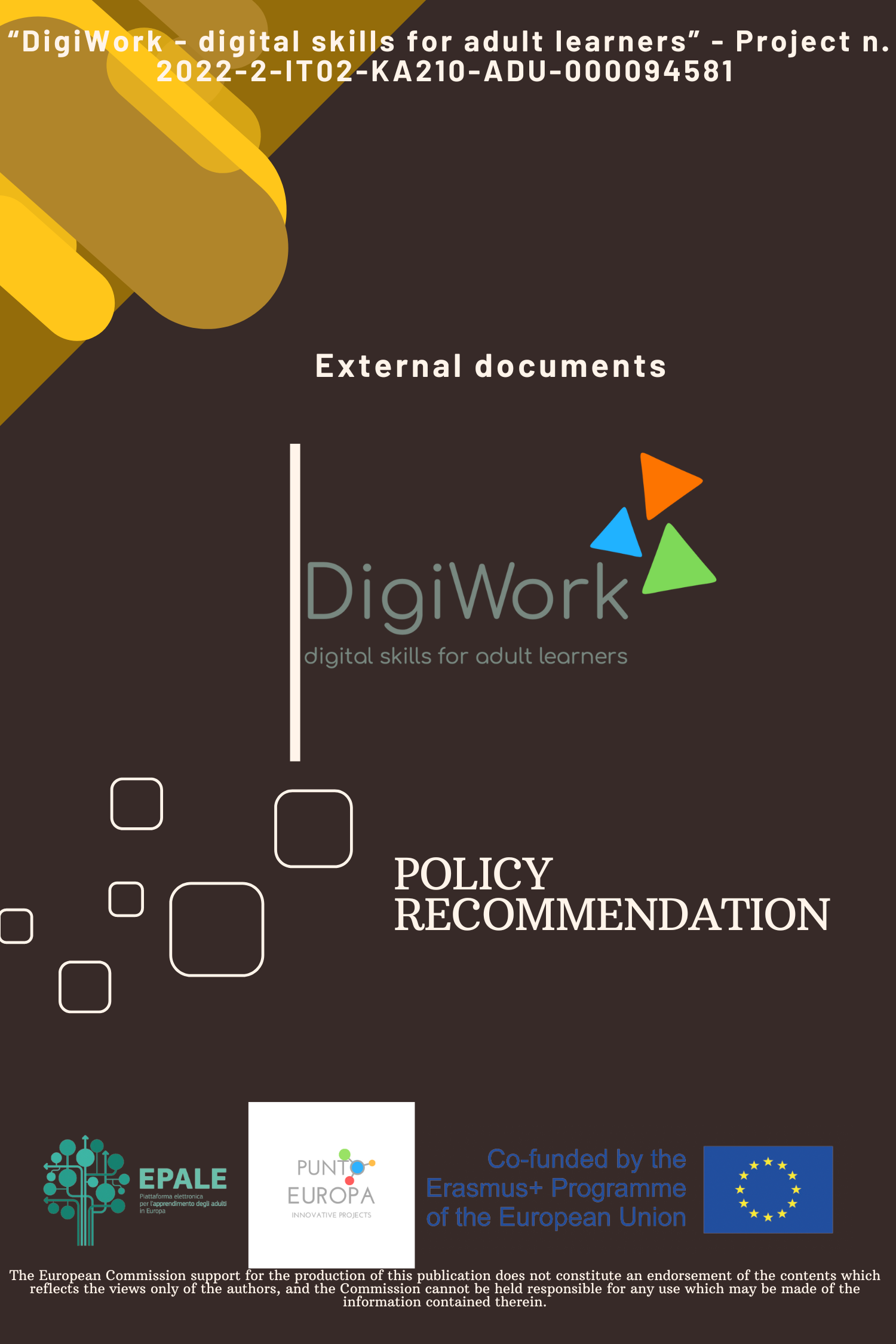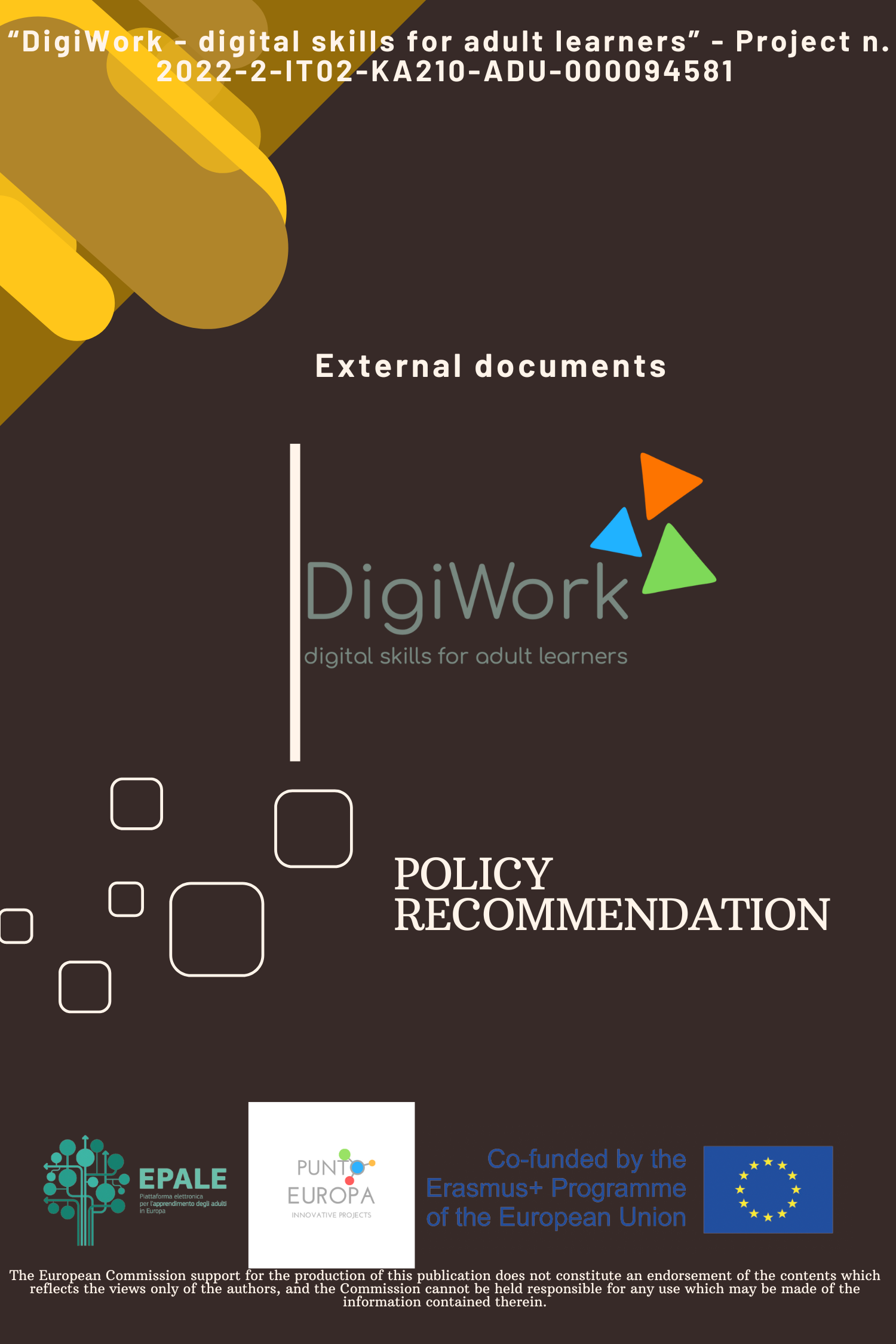DIWI Policy Recommendation: Bridging the Digital Divide for Adults Over 45

Discover how the DIWI project’s policy recommendation aims to improve digital skills for adults over 45 through tailored e-learning initiatives.
The DIWI project (Digital Work Inclusion for Adults Over 45) has demonstrated that targeted digital literacy programs can significantly impact adults who often face challenges in navigating the increasingly digital world. As a result, the project team has developed a comprehensive policy recommendation aimed at policymakers, educators, and stakeholders, urging them to address the digital divide faced by adults over 45.The policy recommendation highlights the need for tailored digital learning solutions that meet the unique needs of this demographic, and outlines several strategic actions to support their integration into the digital economy.
Key Recommendations
1. Prioritize funding for digital literacy programs
The DIWI project found that adults over 45 face specific challenges in adopting digital technologies, often due to a lack of exposure and confidence. Governments and institutions should allocate more funding to create and sustain digital literacy programs specifically designed for this age group. These programs should focus on practical skills, such as digital security, online communication, and basic IT knowledge, empowering adults to participate fully in the digital economy.
2. Foster public-private partnerships
One of the key findings from DIWI was the need for collaboration between public institutions and the private sector. Public entities, such as local governments and educational institutions, should work with private companies to design digital skills programs that align with real-world applications. For example, partnerships with technology firms can offer access to the latest tools and technologies, while public institutions ensure the programs are inclusive and accessible to all adults.

3. Support continuous professional development (CPD)
Many adults over 45 are looking to enhance their employability by gaining new skills. Policymakers should promote Continuous Professional Development (CPD) programs that provide opportunities for adults to reskill and upskill. These programs should offer flexible, accessible learning pathways that cater to different learning paces, allowing individuals to learn while balancing personal and professional commitments.
4. Promote tailored e-learning platforms
The success of the DIWI project’s e-learning modules highlights the importance of developing e-learning platformstailored to adults over 45. These platforms should offer step-by-step guidance, interactive tutorials, and support systems, such as forums or online tutors, to help learners overcome challenges and progress at their own pace. The project recommends expanding platforms like EPALE (Electronic Platform for Adult Learning in Europe), which provide resources specifically designed for adult learners.
5. Ensure access to digital tools and resources
Access to digital tools remains a significant barrier for many adults over 45. The policy recommendation encourages government initiatives to provide affordable access to computers, tablets, and high-speed internet, especially in rural and underserved areas. Public libraries, community centers, and educational institutions should also offer free access to digital resources and provide on-site training.
Why this matters
The DIWI project’s research shows that improving digital literacy among adults over 45 has a far-reaching impact on both the individual and societal levels. With increased digital skills, adults are more likely to engage in lifelong learning, improve their employability, and participate fully in social and civic life. The project’s policy recommendation provides a clear roadmap for governments, educators, and organizations to bridge the digital divide and create a more inclusive, digitally connected society.